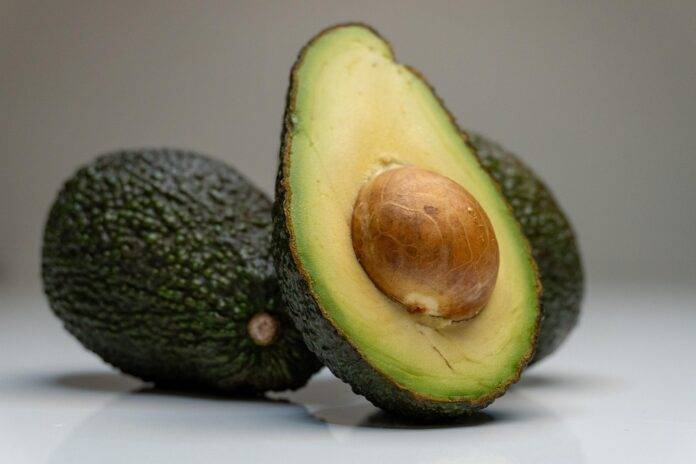Introduction
The avocado industry has experienced exponential growth in recent years, becoming one of the most sought-after agricultural products globally. This report focuses on the growth and forecast of avocado farming, particularly emphasizing sustainability trends from 2025 to 2030. The report includes insights into market dynamics, financial projections, production volumes, and the importance of sustainable practices in avocado farming.
Current State of Avocado Farming
As per recent data, the global avocado market was valued at approximately $13 billion in 2021 and is projected to reach around $20 billion by 2025. This growth can be attributed to the increasing demand for avocados due to their health benefits, popularity in various cuisines, and the rise of plant-based diets.
According to the Food and Agriculture Organization (FAO), avocado production has seen a significant uptick, with global production volumes increasing from 3 million metric tons in 2020 to an estimated 4 million metric tons in 2025. Major producing countries include Mexico, the Dominican Republic, Peru, and Colombia, with Mexico accounting for nearly 30% of the global supply.
Sustainability in Avocado Farming
Sustainability has emerged as a critical focus in the avocado farming sector, driven by environmental concerns associated with traditional farming practices. The use of pesticides, water consumption, and land degradation are significant issues that farmers must address to ensure long-term viability.
Environmental Impact
The environmental impact of avocado farming is a pressing concern. For instance, the avocado’s high water requirements can lead to water scarcity in regions where it is grown, particularly in Mexico, which is facing increasing drought conditions. Sustainable farming practices, such as rainwater harvesting and drip irrigation, can mitigate these impacts.
Social Responsibility
Sustainable avocado farming also encompasses social responsibility. Many consumers are becoming increasingly aware of ethical sourcing and the treatment of farmworkers. Fair trade practices, labor rights, and community engagement are essential elements that consumers consider when purchasing avocados. Companies that prioritize social responsibility are likely to gain a competitive edge in the market.
Growth Forecast: 2025-2030
The forecast for avocado farming from 2025 to 2030 indicates continued growth, driven by rising health consciousness, expanding international markets, and increasing consumption rates.
Market Trends
The avocado market is expected to grow at a compound annual growth rate (CAGR) of 5.6% from 2025 to 2030. This growth will be fueled by the increasing popularity of avocados as a superfood, with their associated health benefits, including high omega-3 fatty acid content and antioxidants.
Rising Demand in Emerging Markets
Emerging markets, particularly in Asia and Europe, are expected to drive demand for avocados. Countries such as China, India, and several Eastern European nations are beginning to embrace avocados in their diets, leading to increased importation. The Asian market alone is projected to account for 15% of global avocado consumption by 2030.
Technological Innovations
Technological advancements in farming practices, including precision agriculture and genetic engineering, will play a vital role in boosting avocado yields. Farmers are increasingly adopting innovative technologies to optimize their production processes, reduce waste, and enhance sustainability.
Financial Projections
The financial outlook for the avocado industry from 2025 to 2030 reflects the anticipated growth in both production and consumption. The following financial data provides insights into expected revenues, costs, and profitability for avocado farmers.
Revenue Projections
By 2030, the global avocado market is expected to generate revenues exceeding $25 billion. This represents a significant increase from the 2025 forecast of $20 billion. Increased consumer demand and the expansion of avocado-based product offerings will contribute to this growth.
Cost Analysis
While revenues are projected to rise, farmers will also face increasing costs related to sustainable farming practices. Investments in technology, organic farming inputs, and labor will be necessary to meet consumer demand for sustainably sourced avocados. It is estimated that the average cost of sustainable avocado farming will rise by approximately 10-15% by 2030.
Profitability Outlook
Despite rising costs, profitability in the avocado market is expected to remain strong. Farmers who adopt sustainable practices are likely to benefit from premium pricing, as consumers are willing to pay more for ethically sourced products. Profit margins for sustainable avocado farms could reach upwards of 25% by 2030, making it a lucrative investment opportunity.
Challenges to Sustainable Avocado Farming
While the future of avocado farming appears promising, several challenges must be addressed to ensure sustainability.
Water Scarcity
Water scarcity remains a significant challenge for avocado farmers, particularly in arid regions. Adopting efficient irrigation techniques and drought-resistant farming practices will be crucial in mitigating this issue. Farmers will also need to collaborate with local governments and NGOs to develop sustainable water management strategies.
Market Competition
As the avocado market grows, competition will intensify, particularly from non-sustainable farming practices. Farmers adopting sustainable methods may face challenges in competing with cheaper, conventionally grown avocados. Building a strong brand focused on sustainability and quality will be essential for market differentiation.
Consumer Awareness
Increasing consumer awareness regarding sustainability and ethical sourcing will be vital for the continued growth of the avocado market. Farmers and retailers must invest in marketing efforts that educate consumers about the benefits of sustainable avocado farming, emphasizing the long-term environmental and social advantages.
Conclusion
The avocado farming industry is poised for significant growth from 2025 to 2030, driven by rising consumer demand, technological advancements, and a shift towards sustainable practices. While challenges remain, the emphasis on sustainability presents an opportunity for farmers to differentiate themselves and enhance profitability. By adopting sustainable farming methods and addressing environmental and social concerns, the avocado industry can thrive in an increasingly competitive market, ensuring its viability for future generations.



